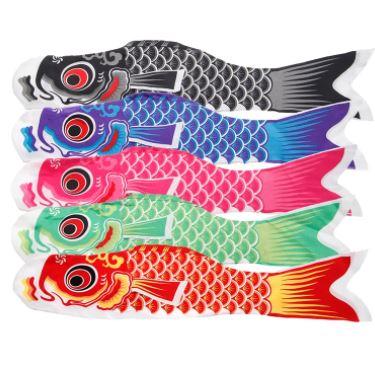Lucky Fish: Which Species for your Aquarium?
Owning a pet costs a lot of time, money and energy... but our friends give us so much!
A fish, it's clear, you won't be able to cuddle him, and it will be quite complicated to find signs of affection coming from him.
However, there are other things that these little aquatic beings can bring you: some of them are indeed real lucky charms.
Between luck, chance and mysterious powers, let's take an interest in the subject of the lucky fish without further delay.
Contents :
Lucky fish in Feng Shui
Chinese culture holds many secrets.
Do you know, for example, that the characters (the famous ideograms) used to represent the word “fish” and “luck” are strangely similar.
Some consider this a mere coincidence.
For others, it doesn't take much to say that there is something true behind the idea of a lucky fish.
It is not for nothing that so many shops and businesses in China choose to include representations of fish in their decoration!
If we go even further, we can interpret the presence of lucky fish through the teachings of Feng Shui.
This ancient art consists of raising awareness and working on the energies that surround us. If these themes speak to you, take a look at our different Feng Shui tools. You will not be disappointed.
In short, Feng Shui will teach us that the presence of an aquarium (and certain specific fish species inside) can impact the energy circulating in our home.
More specifically, a well-maintained aquarium attracts prosperity and abundance.

Goldfish, luck and prosperity
If you've ever heard of the famous lucky goldfish, you're not the only one. This idea is indeed very widespread, across many cultures.
Perhaps the simplest way to understand why the goldfish is so associated with luck is to look at its colors.
Basically, and depending on the breeds, there are species with red or golden hues. The first color is associated with life and energy, while the second represents wealth.
This simple explanation might be enough for many people… but not for us!
By focusing on the theme of the lucky goldfish, we discovered ancient Buddhist legends which spoke to us about the place of these animals in the world.
We are told that at the very moment of his enlightenment, the Buddha received as a gift two small goldfish, representing respectively the Ganges and Yamuna rivers (two major rivers of Northern India).
If you are interested in this animal and want to learn more about it, here is an article describing what there is to know about it.
Either way, the fact is that goldfish are arguably the most obvious choice if you're looking for a lucky fish to place in your aquarium.
The most obvious choice, yes… but not the only one!
Carp: Japanese favorite lucky fish
Another well-known lucky fish (and popular with aquarists) is the koi carp.
Recognized emblem of Japanese, these marine animals stand out for their bright colors and the graceful movements they make in pools and ponds.
Talking about koi carp is in fact a pleonasm, the word “koi” being a translation of the word “carp” in Japanese.
Regardless, we are here faced with a leading lucky fish associated with qualities of strength, courage and perseverance.
It's not for nothing that so many carp-shaped kites like this one float in the Japanese sky!
It seems in fact that this all stems from the habit of these fish to swim against the current, thus going up the rivers of Japan.
This particular trait even gave rise to a legend…
It is said that if one day a koi managed to swim up the Yellow River in China, it would transform into a dragon.
No animal has arrived there yet, but everyone continues to hope and try.
The koi carp has really not lost its quality as a lucky fish for perseverance !
From a purely energetic point of view, it has also been noted that these animals have the ability to transform negative energy into one more beneficial to us.
Lucky charm featured in this article

Koinobori (or Kite Fish)
See more


